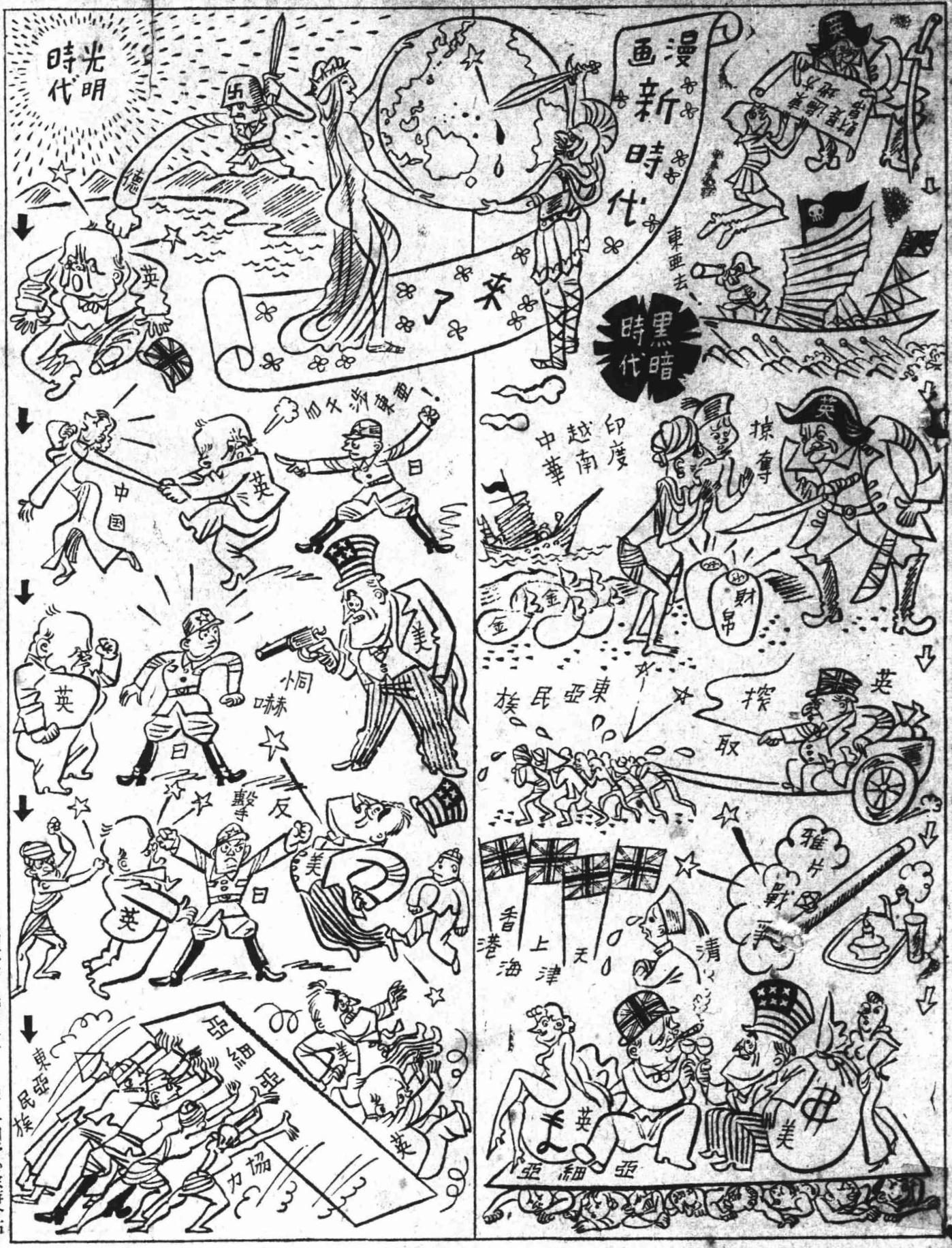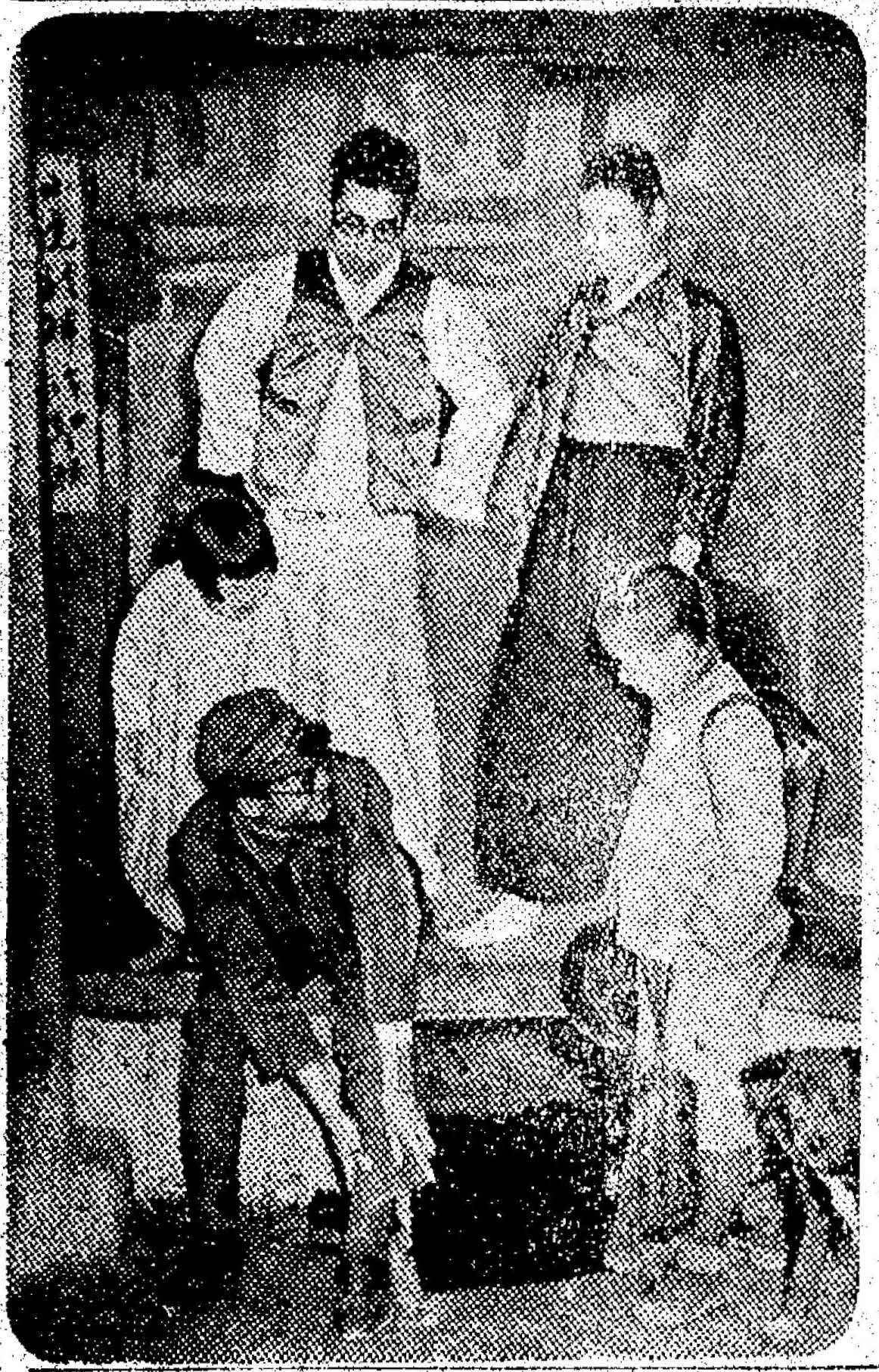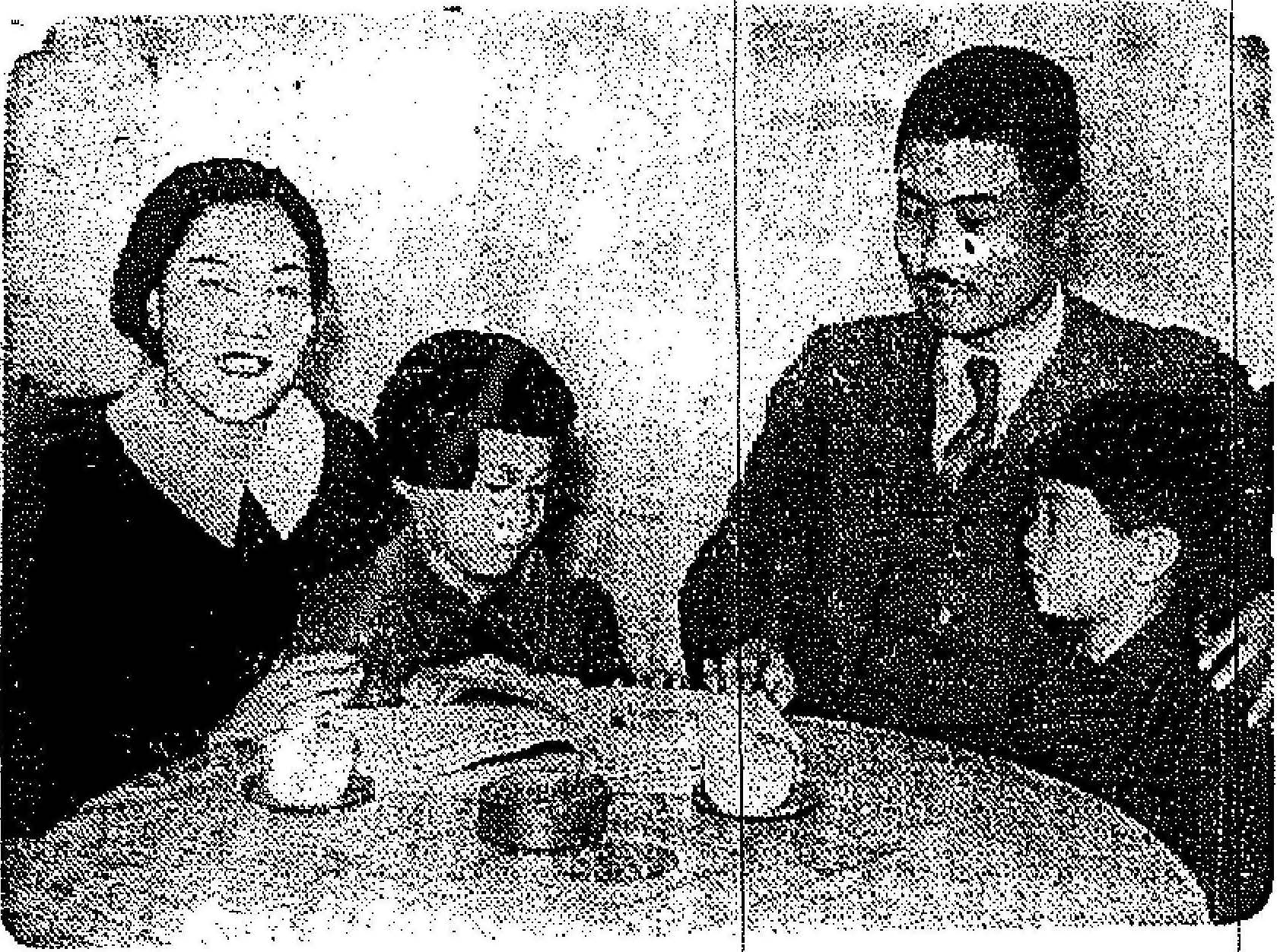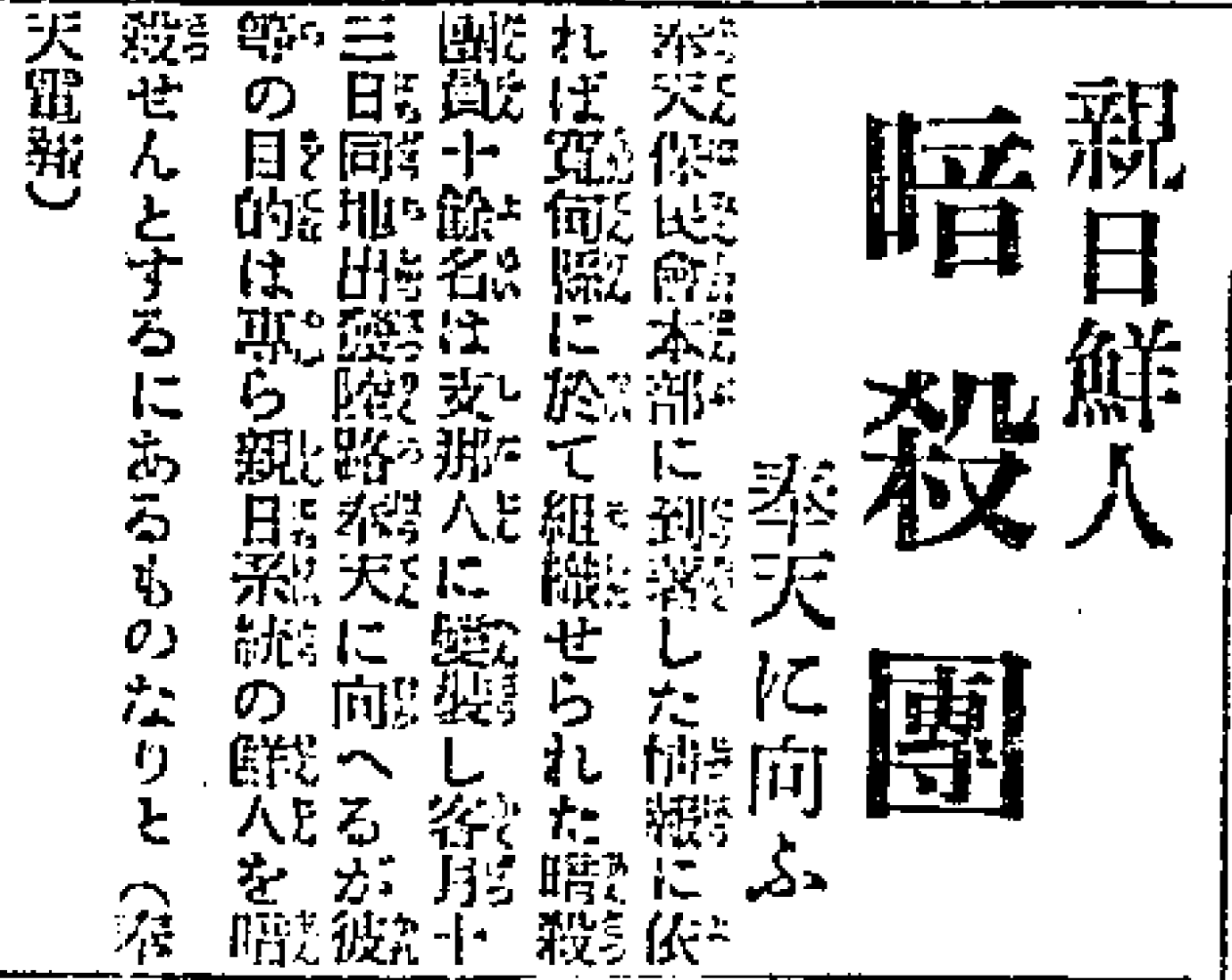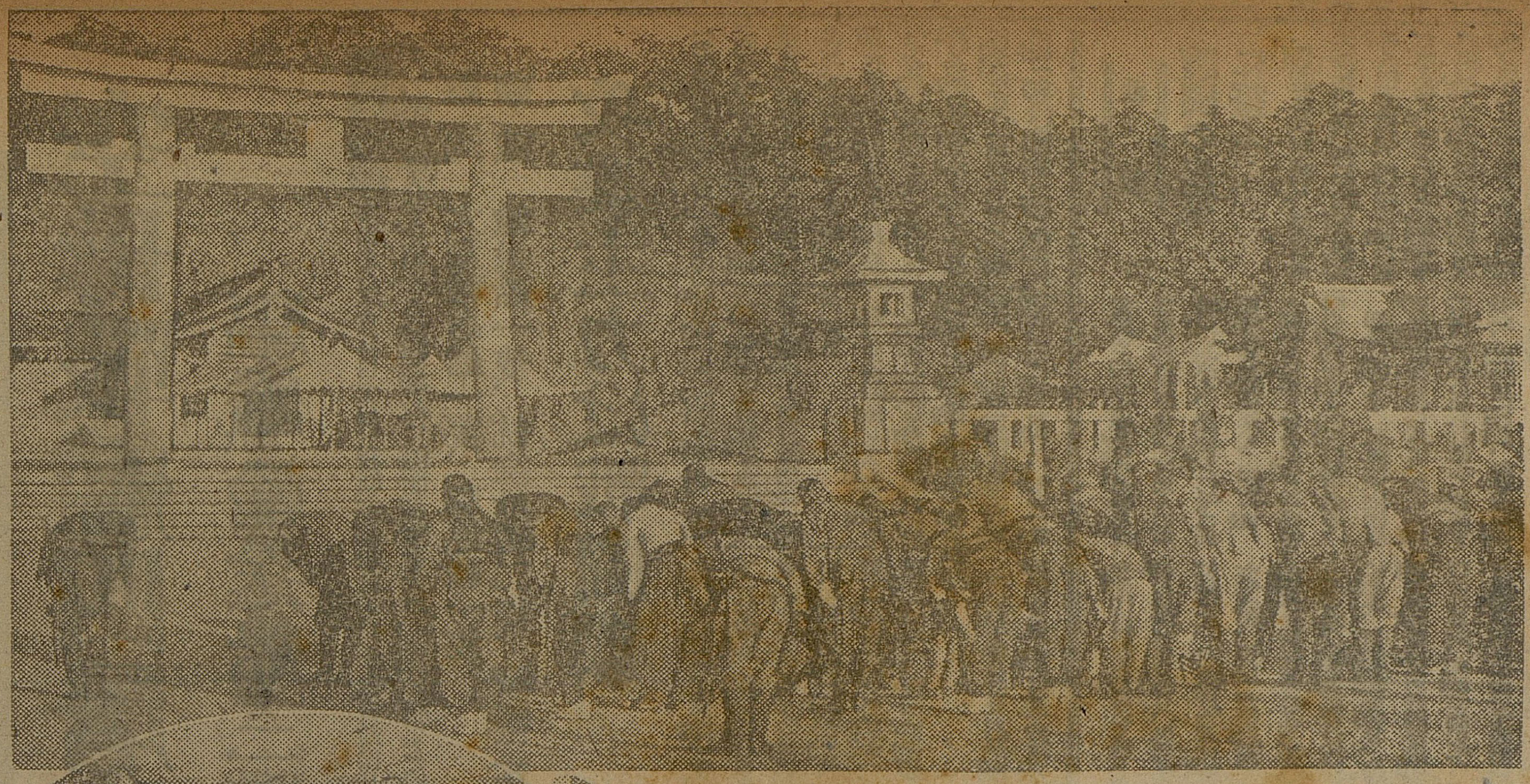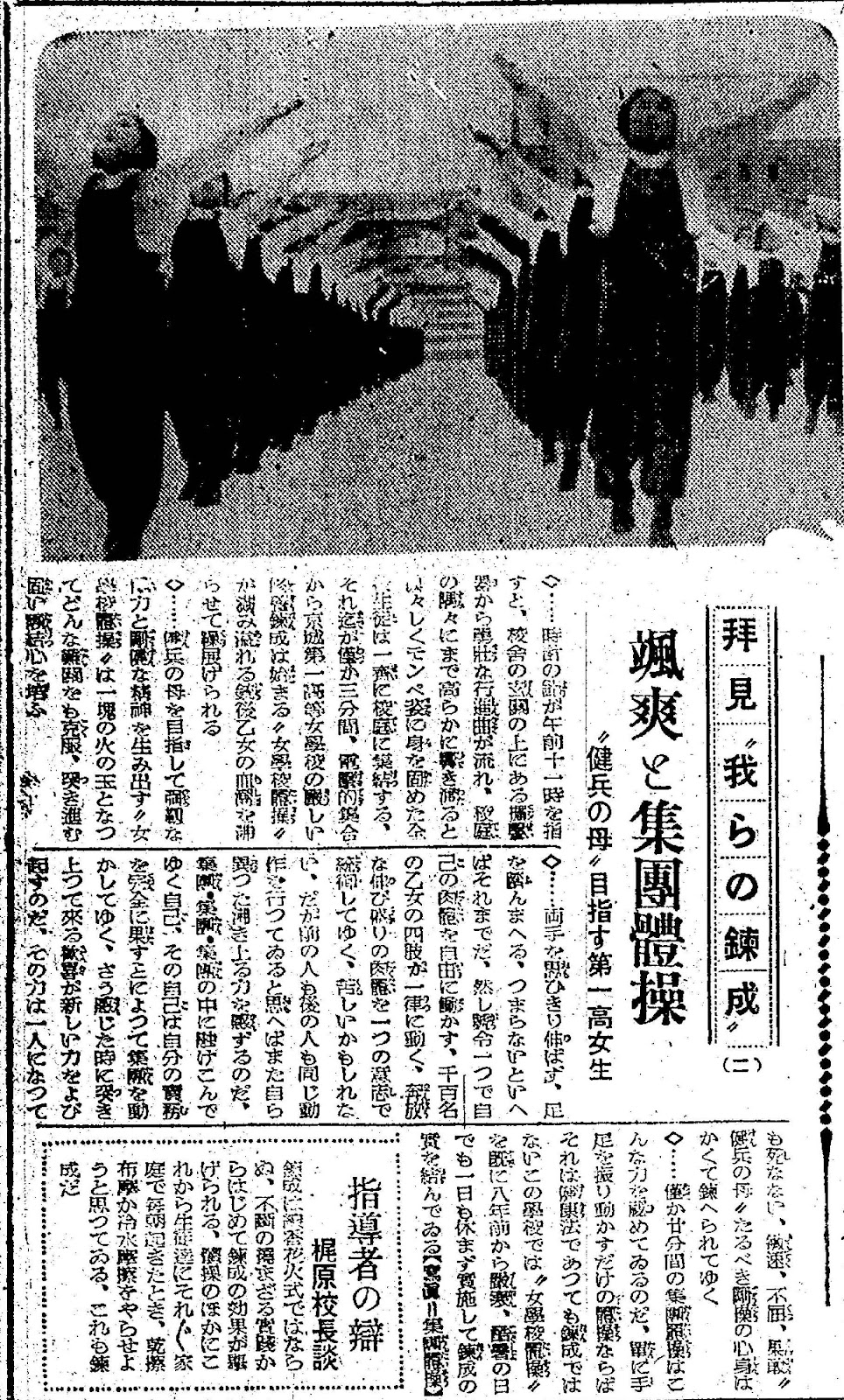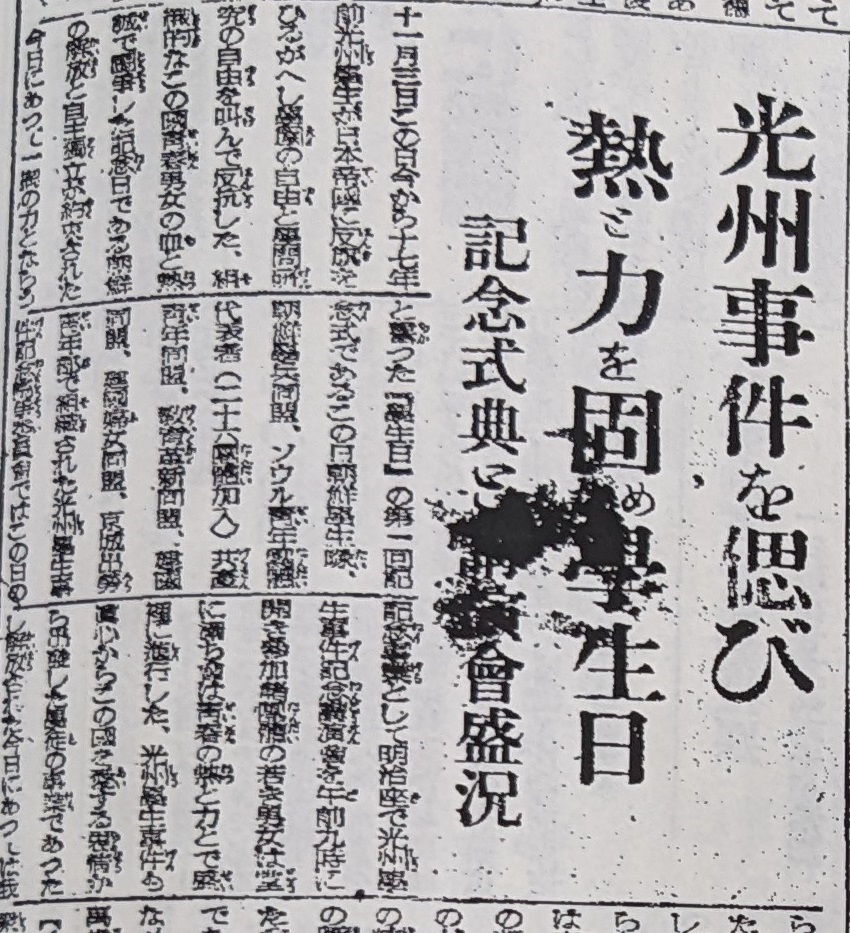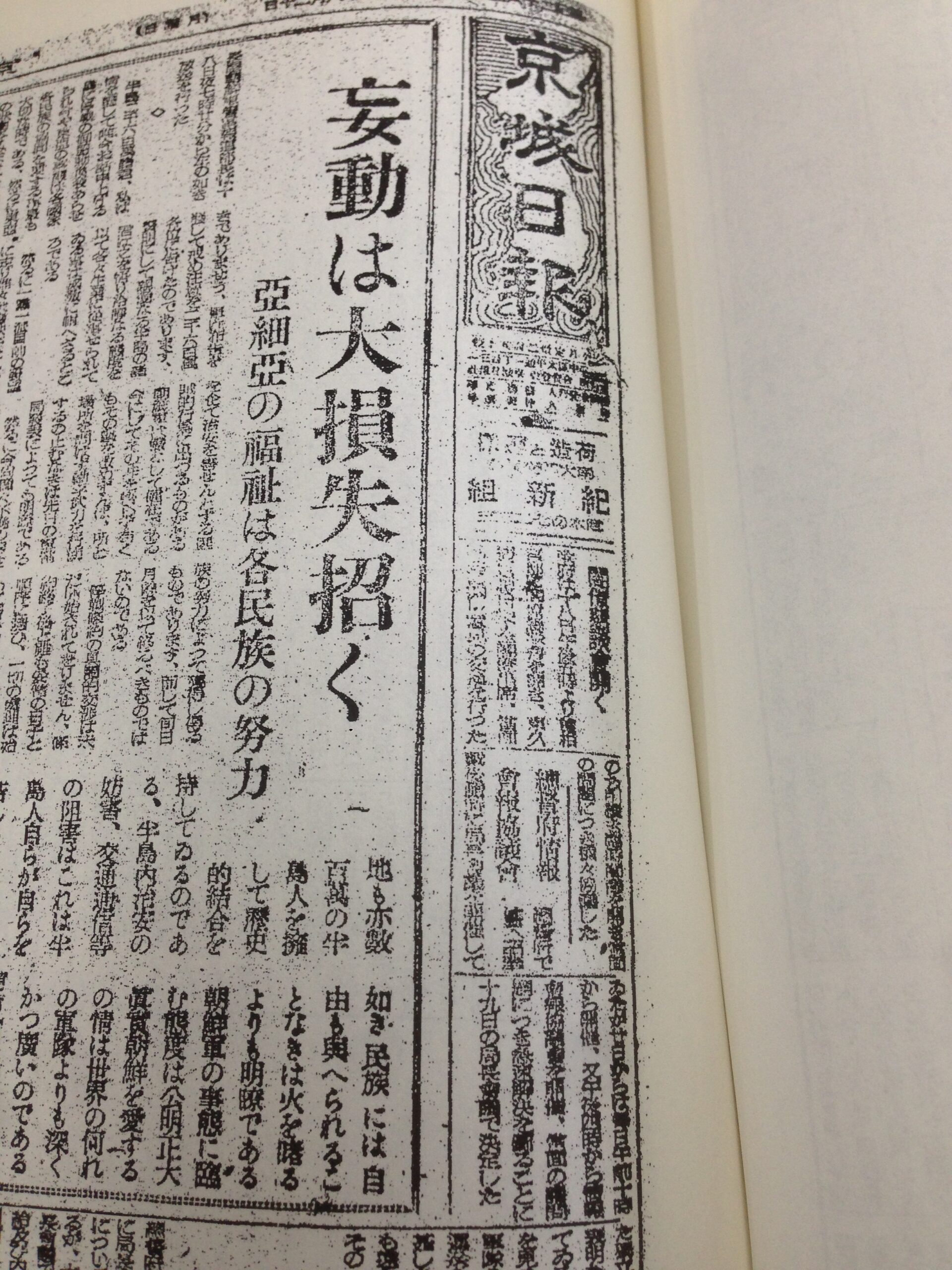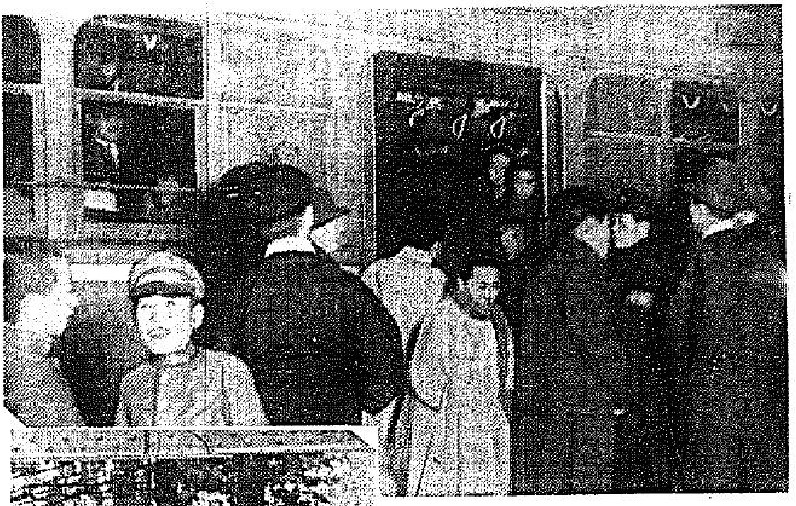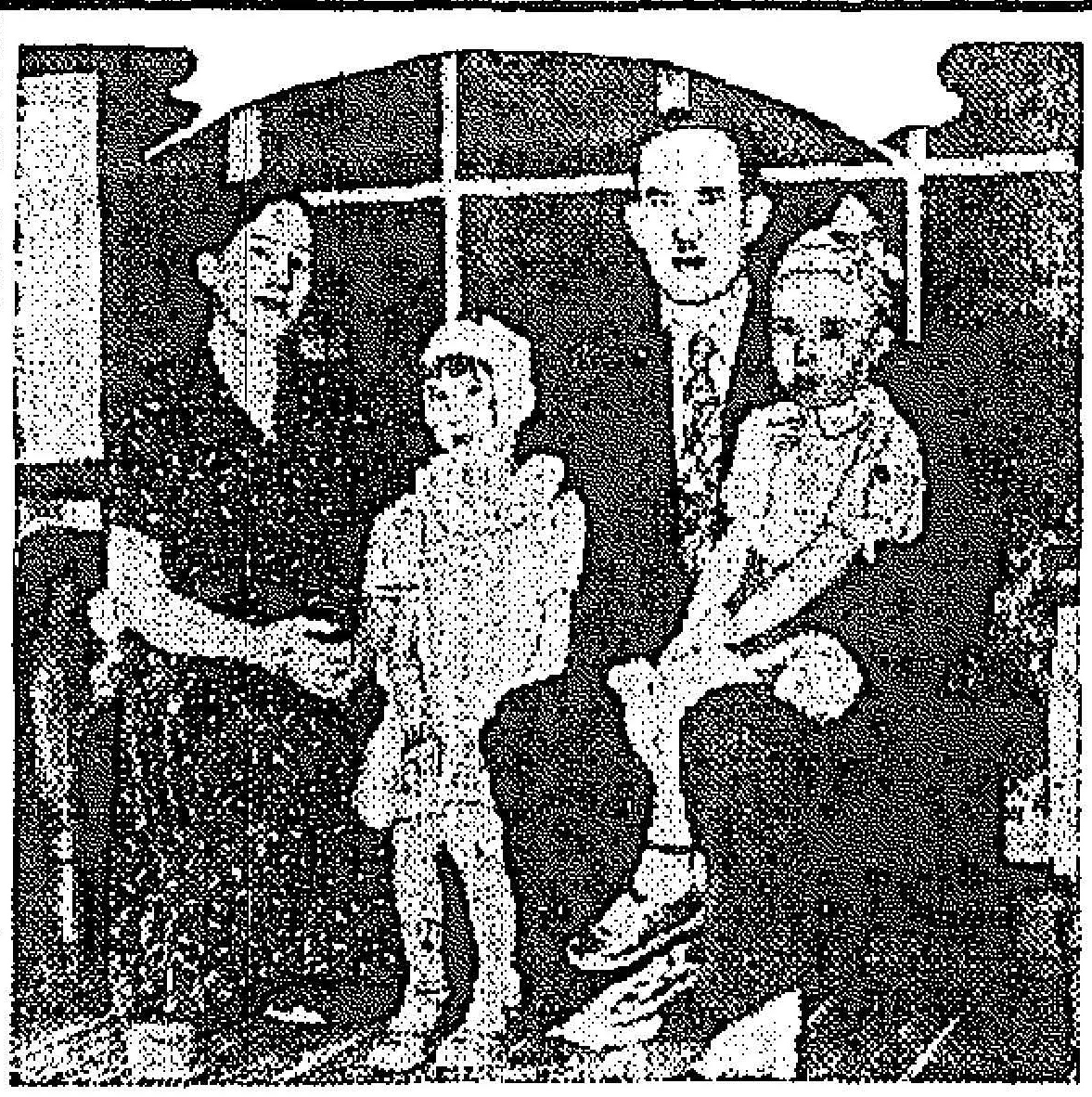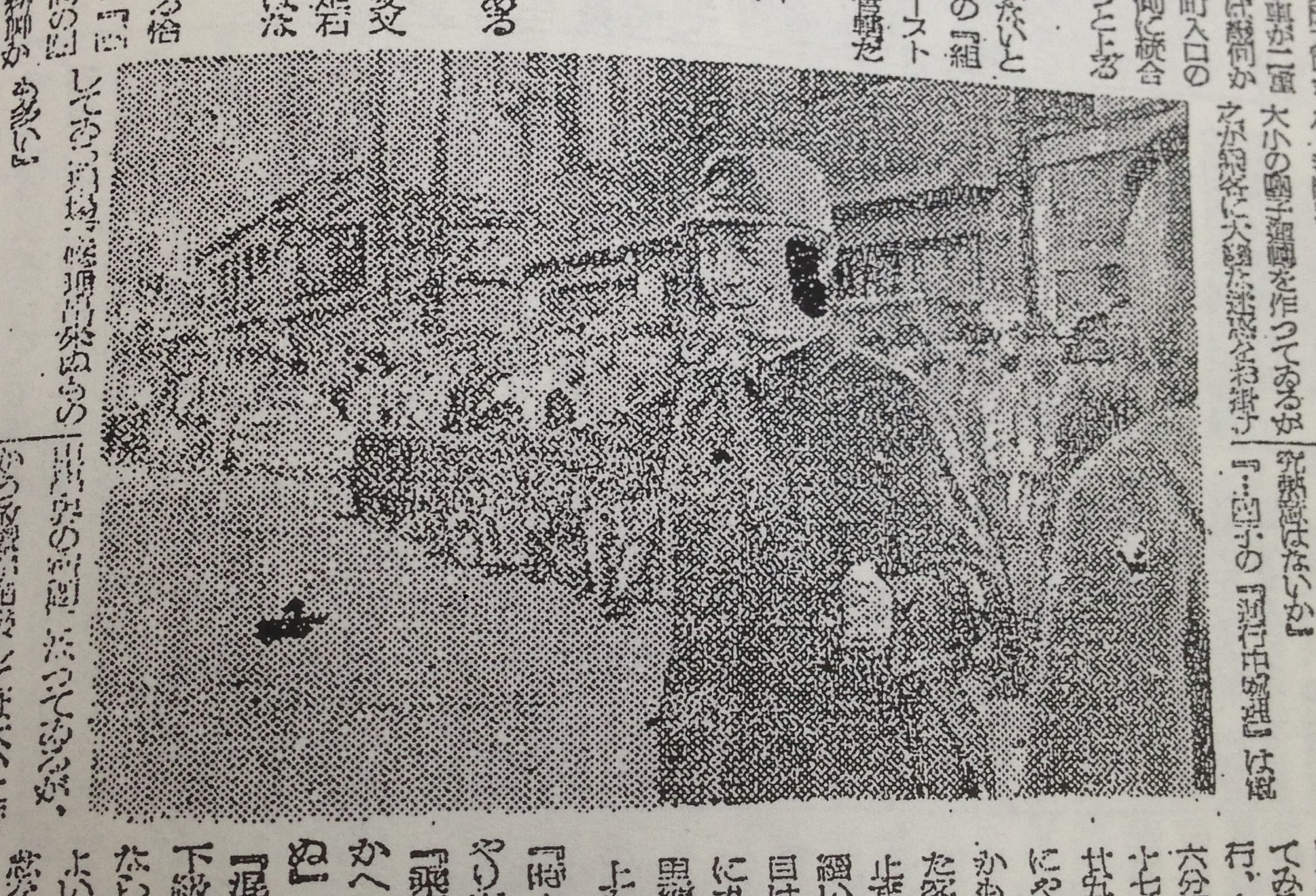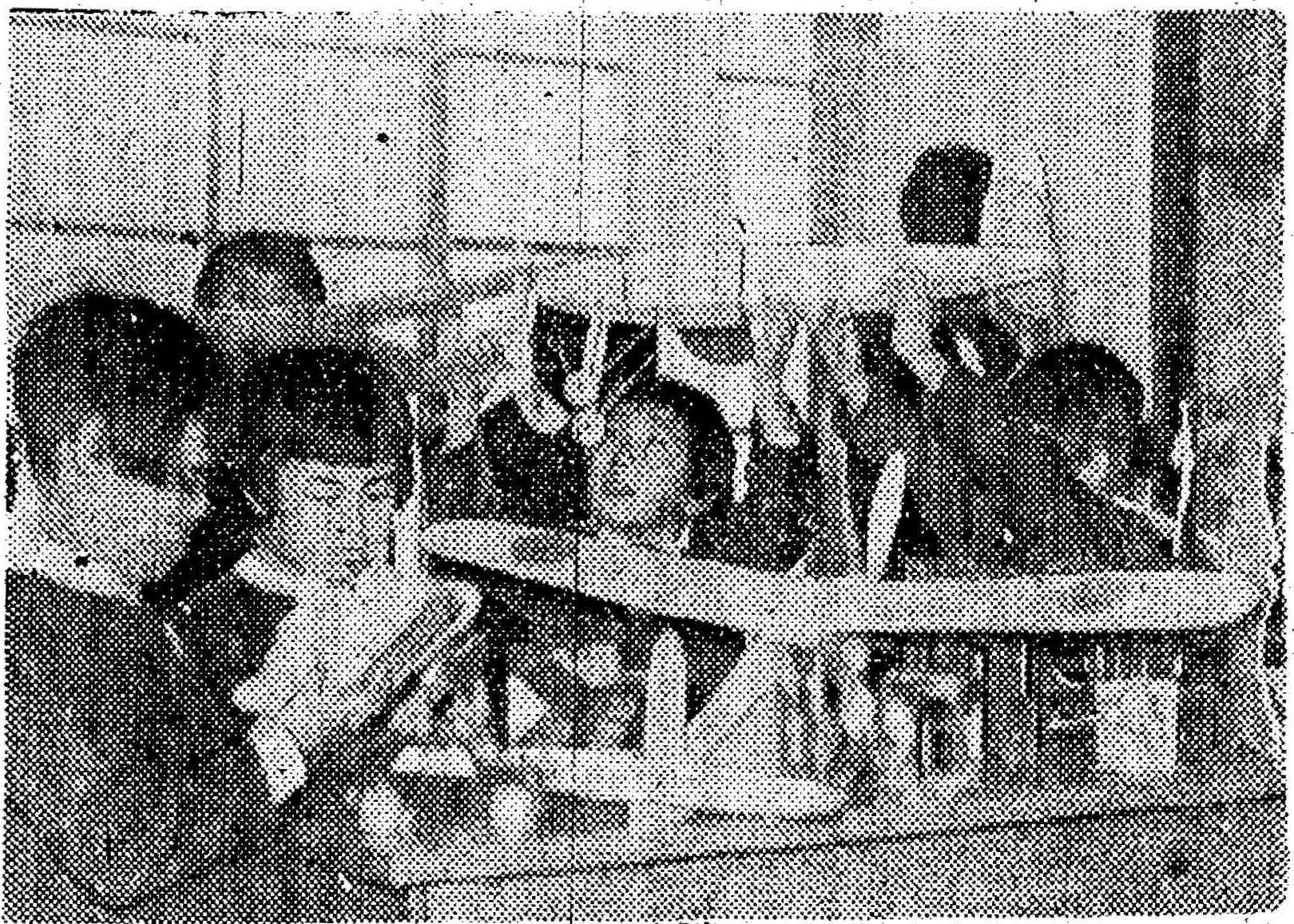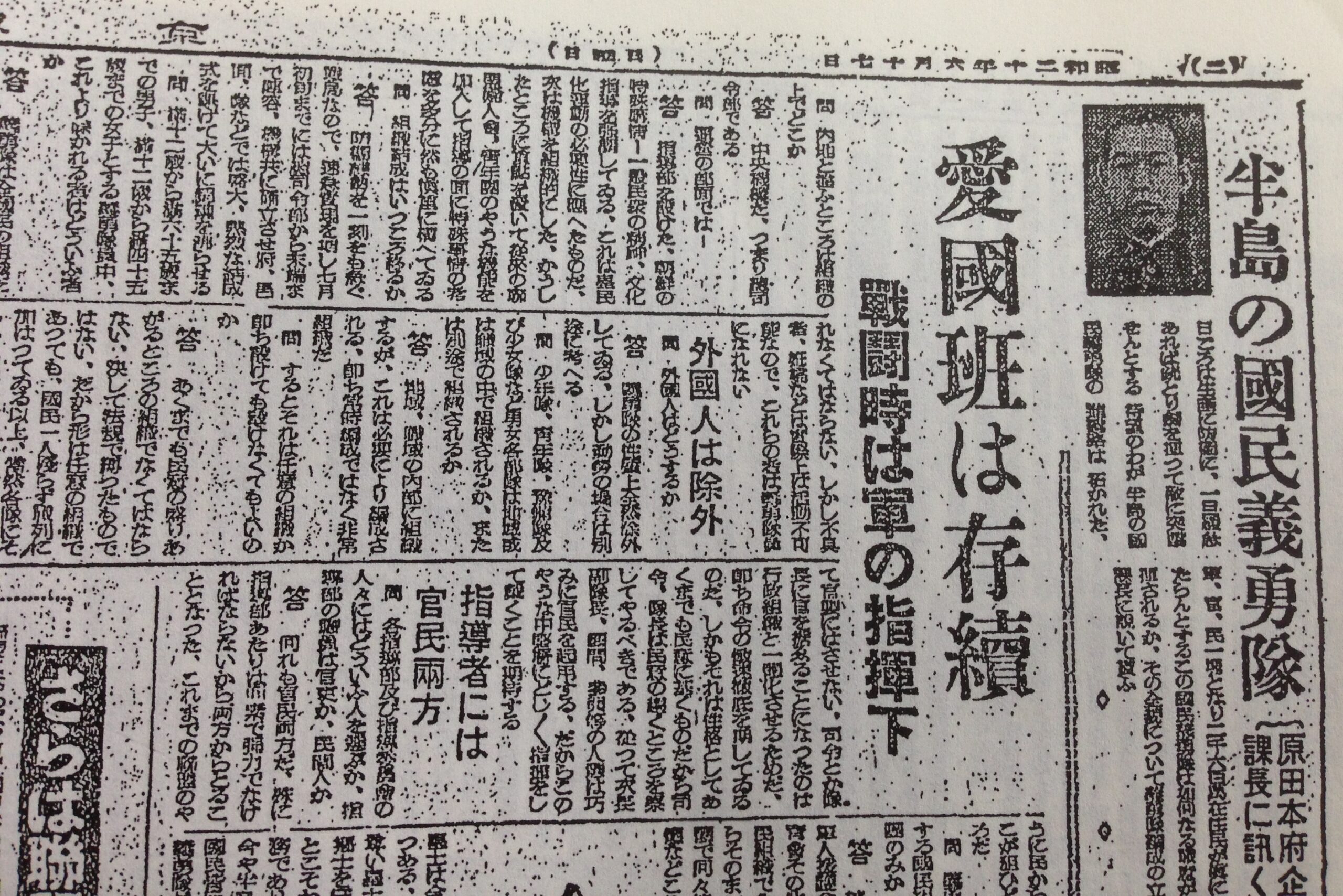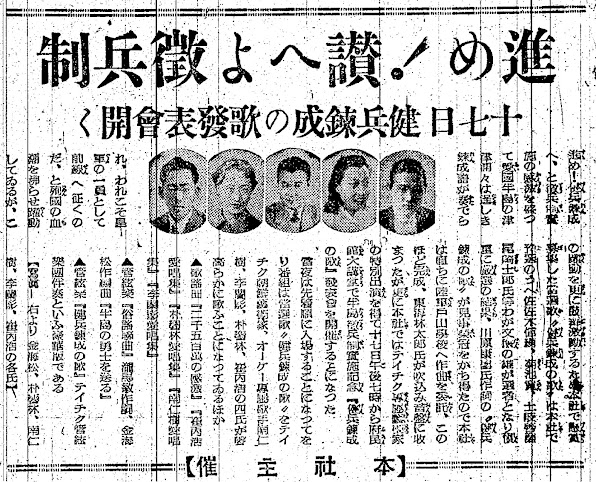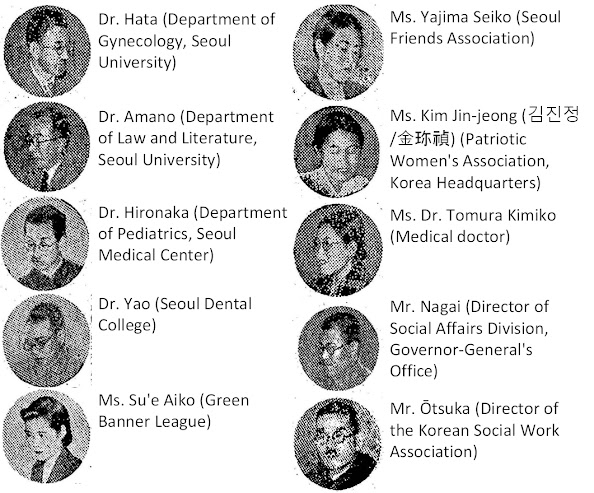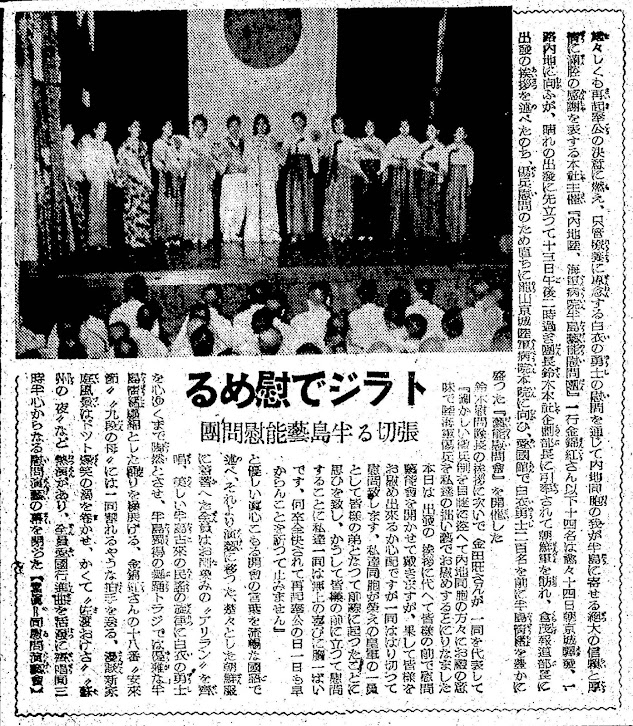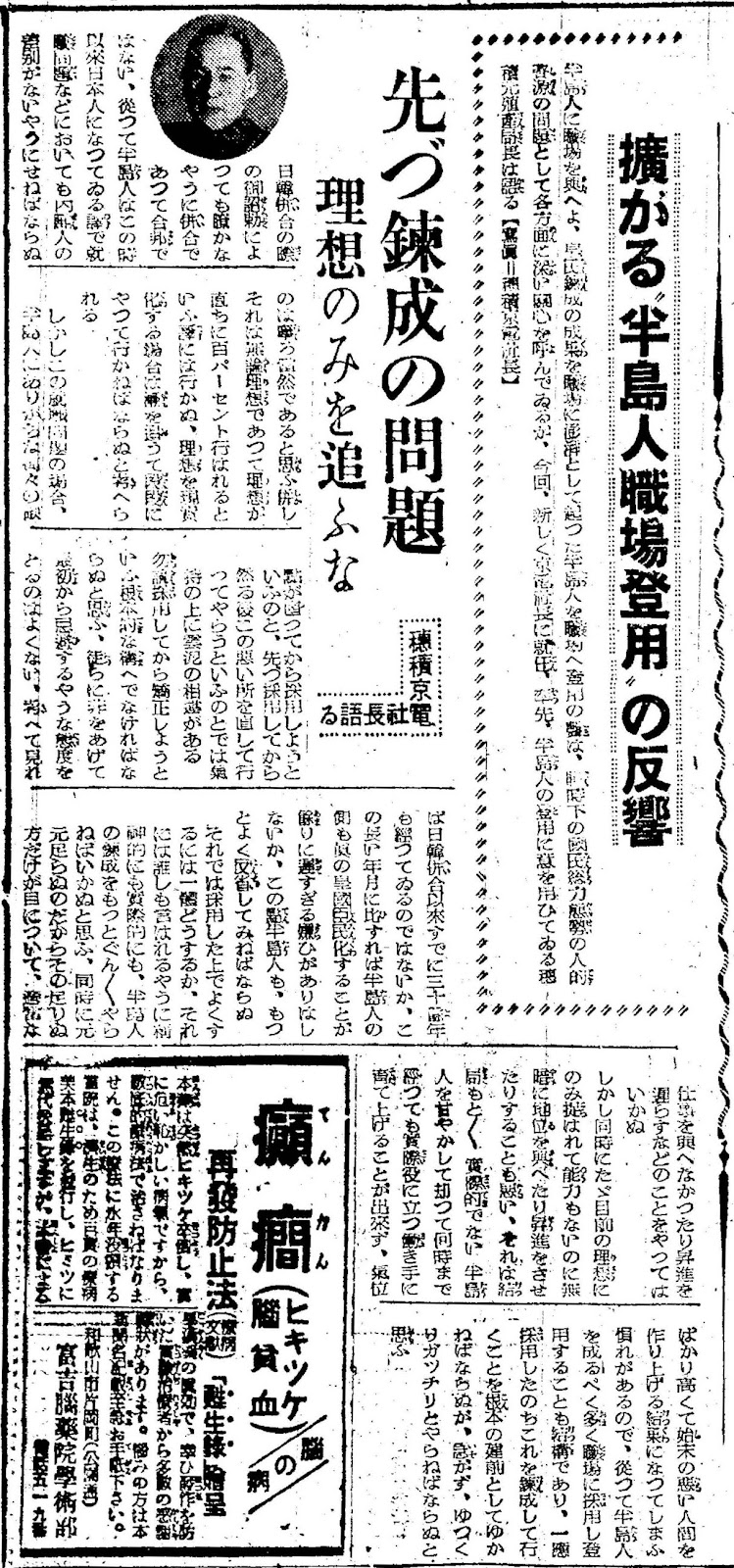
In January 1943, the CEO of a telephone company talks frankly about the problems associated with hiring Koreans in Japan-occupied Korea
The Growing Response to the “Employment of Koreans in the Workplace”
The call to promote Koreans in the workplace, which arose from the idea of giving Koreans workplaces and bringing the fruits of imperial training to the workplace, has attracted deep interest from various quarters as an issue of human resources for the nation’s total power posture during wartime. Photo: Hozumi, President of Kyoden Corporation
It’s a matter of training first.
Don’t pursue ideals only
Kyoden President Hozumi speaks
As is clear from the Imperial Rescript on the annexation of Japan and Korea, it was an annexation, not a union. Therefore, the Koreans have become Japanese since that time, and it is natural that there should be no discrimination against Koreans in employment issues. However, this is of course an ideal, and it is not possible for an ideal to be implemented 100% immediately. To make the ideal into reality, I think that things should proceed gradually in incremental steps.
However, in the case of the problem of employment, there is a vast difference in sentiment between hiring after dealing with all the problems that the Koreans tend to have, and hiring first and then correcting the problems afterwards.
Of course, you have to take the fundamental stance of correcting the problem after hiring. It is not a good idea to take an attitude of avoidance from the very beginning by simply pointing out faults. If you think about it, it has already been more than thirty years since the annexation of Japan and Korea. Compared to this long period of time, don’t you think that the Koreans have been too slow to become true imperial subjects? The Koreans should reflect on this point more carefully.
So how can we improve the situation after hiring them? In order to do this, I think that we need to train the Koreans more and more, both mentally and practically, as everyone says. At the same time, since we are lacking in this area, we should not just focus on their shortcomings and, as a result, fail to give them appropriate jobs or delay their promotion.
At the same time, however, it is also wrong to be so caught up in the ideals of the immediate future that we blindly give the Koreans positions or promotions when they have no ability. In the end, this is impractical. If we indulge the Koreans, we will never be able to develop them into useful workers, and we will end up with people who are too high-minded to take care of things. Therefore, it is fine to hire and promote as many Koreans as possible in the workplace, and after hiring them, train them. However, I believe that we must do this slowly and steadily, and not hastily.
(Transcription into modern Japanese orthography)
京城日報 昭和十八年一月十三日
拡がる”半島人職場登用”の反響
半島人に職場を与えよ、皇民錬成の成果を職場に膨満として起った半島人を職場へ登用の声は、戦時下の国民総力態勢の人的資源の問題として各方面に深い関心を呼んでいるが、今回、新しく京電社長に就任、率先、半島人の登用に意を用いている穂積元殖産局長は語る。【写真=穂積京電社長】
先ず錬成の問題
理想のみを追うな
穂積京電社長語る
日韓併合の際の御詔勅によっても瞭かなように併合であって合邦ではない。従って半島人はこの時以来日本人になっている訳で就職問題などにおいても内鮮人の差別がないようにせねばならぬのは寧ろ当然であると思う。併しそれは無論理想であって理想が直ちに百パーセント行われるという訳には行かぬ。理想を現実化する場合に漸を追うて段々にやって行かねばならぬと考えられる。
しかしこの就職問題の場合、半島人にありがちな万々の難点が回ってから採用しようというのと、先ず採用してから然る後この悪い所を直して行ってやろうというのとでは気持ちの上に雲泥の相違がある。
勿論採用してから矯正しようという根本的な構えでなければならぬと思う。徒らに非をあげて最初から忌避するような態度をとるのはよくない。考えて見れば日韓併合以来すでに三十余年も経っているのではないか。この長い年月に比すれば半島人の側も真の皇民臣民化することが余に遅すぎる嫌いがありはしないか。この点半島人も、もっとよく反省してみねばならぬ。
それでは採用した上でよくするには一体どうするか。それには誰しも言われるように精神的にも実際的にも、半島人の錬成をもっとぐんぐんやらねばいかぬと思う。同時に元々足らぬのだからその足りぬ方だけが目について、適当な仕事を与えなかったり昇進を遅らすなどのことをやってはいかぬ。
しかし同時にただ目前の理想にのみ捉われて能力もないのに無暗に地位を与えたり昇進をさせたりすることも悪い。それは結局もともと実際的でない。半島人を甘やかして却って何時まで経っても実際役に立つ働き手に育て上げることが出来ず、気位ばかり高くて始末の悪い人間を作り上げる結果になってしまう惧れがあるので、従って半島人を成るべく多く職場に採用し登用することも結構であり、一応採用したのちこれを錬成して行くことを根本の建前としてゆかねばならぬが、急がず、ゆっくりガッチリとやらねばならぬと思う。
